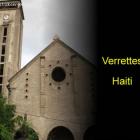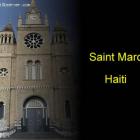ADVERTISEMENT
Religion - Haiti Observer Blog
Religion, Haiti Observer Blog. Read the following articles about Religion
Is Halloween Okay for a Christian to Celebrate?
The beginnings of Halloween we know and celebrate today began around the time of Christ, 2,000 or more years past. It is the second most profitable holiday for retailers, tracing its origins back to ancient Ireland and Scotland. Celtic priests, the educated Druid class, subscribed to a pagan belief system. On Samhain Eve, they celebrated the end of summer and descent into the dark months of the year, engaging in animal sacrifice and interpreting omens. They also sought guidance from occult influences to perform magic and heal the sick.
Christianity arose in the aftermath of Jesus' crucifixion and dominated northern Europe, until the Protestant Revolt. Before the Protestants banished Catholic traditions, Christian theology had co-mingled with Celtic traditions and created a Church holiday, All Hallows', or All Saints' Day today. Eventually All Hallows' shifted to the word Halloween.
Ambassador Carl-Henri Guiteau Appointed Envoy to the Holy See
Carl-Henri Guiteau was re-appointed Ambassador of Haiti to the Vatican Holy See on July 6, 2009, having served in that capacity from 2002 to 2004. He carries the title of Envoy Extraordinary and Plenipotentiary of Haiti to the Holy See.
In an official letter of acknowledgement, Pope Benedict XVI expressed his hopes for the future of Haiti, a country historically wracked by natural disaster, unstable governments, poverty, violence, and a rotting infrastructure.
Benedict XVI, in his letter to Ambassador Carl-Henri Guiteau, wished for him and Haiti the cooperation of the international community of donors to provide assistance to the poorest segments of the population. In particular, he stressed the disunification of families leading to the Diaspora, especially in the U.S.
Bishop Launay Saturne Year of Faith Focuses on Christian Haitian Youth
Mgr. Launay Saturné, named Bishop of Jacmel by Pope Benedict XVI on April 28, 2012, appeared at an assembly of high-church officials on October 21, 2012. The year 2012 has been designated the Year of Faith by the Haitian Catholic Church.
During his remarks, Bishop Saturné spoke in particular of the younger generation of Christian Haitians, who would soon reach adulthood. He wants to commit much of his pastoral duties towards helping them engage their faith more confidently. This call-to-action to young Christians to embrace their faith-based values comes in the face of the continuing spiritual devastation the 2010 earthquake wrought the inhabitants of the island.
The Jewish community in Haiti
Haiti became a safe place, and an eventual home, for many of the Jews who fled Europe during the Nazi reign of terror. While other nations turned them away, the Caribbean country, also victims of crimes by the German power, essentially saved the lives of nearly 300 Jews.
Those who hoped to enter the United States were given affidavits, but would have to wait until their numbers were called. Some were able to secure passage to Haiti and traveled there on Visa's to stay until they were able to enter the US.
Given shots and tips on how to survive in the tropics, they eventually learned to settle into Haitian life. Most found themselves entered into the middle class and the children were schooled and quickly learned French. There was a booming community developing among the arriving Jews and they soon became referred to as 'Austrians', as most were discovered to be from Austria.
No Protection for Voodoo Religion by Amended Haiti Constitution
The majority of modern-day Haitians believes in and practices at least some aspects of voodoo. In 1935, a law effectively stated the practice of Voodoo as superstitious, noting that individuals who participate in different ceremonies and practices that function as an offering to local deities such as the sacrificing of livestock could be fined or even imprisoned. It was then abolished in the 1987 constitution due to the change in government and the protests of Haitians. In 2003, Voodoo was officially recognized as an official religion in Haiti, meaning it enjoyed the same rights and legal protections as any other religion.
From Hope to Faith within Christianity
Two ideas of hope exist: secular and religious
Secular hope, asserts whatever we desire we can achieve through faith in ourselves; the second that our desires will be achieved through our faith in God.
Religious hope issues from the promises given by God to His followers in the Bible, and to all believers in God's promises for us.
Secular hope and biblical hope begin with a yearning within us for something good and pleasurable. In secular hope, desires can be achieved through a belief system (are we worthy of this good); directed thinking (a plan put into action); and opening up to opportunities and possibilities (how we will achieve the desire).
Why and How Afterlife Beliefs Occur
There have been studies showing how and why after life beliefs occur in a person's life.
These studies about After life Beliefs were done by a group of experimental social psychology PhD students, including Nathan Heflick, Joshua Hart of Union College and Jamie Goldberg of the University of South Florida. Conducting four studies allowed the researchers to determine the relationship between salient death and afterlife belief.
According to Heflick, afterlife belief often occurs when a person believes and perceives that a part of himself such as the soul can be independent from the physical body. Given this reasoning, it is possible to affect one's afterlife belief if the physical body is primed. Heflick and his group also concluded that with death salience comes a stronger desire to believe that there is life after death. However, this does not mean that a person facing a salient death actually believes in the afterlife. He only has an increased desire to believe in it.
After Life Beliefts for Islam
If the Islamic belief on life after death is true, then one must be cautious of his actions here on Earth.
One must be cautious of his actions here on Earth because Muslims believe that a deceased person's afterlife heavily depends on the deeds he has done while he was still alive.
According to Islam, every departed is put in like a soul sleep until the Judgment Day comes. During this important day, God will judge both the living and the dead based on the things they have accomplished on Earth. Those who have done good things will then be sent to Heaven, which is described as a paradise where suffering does not exist. Wicked ones, on the other hand, will go to Hell and burn in fire as a punishment for their sins. They can, however, be forgiven by God in His own will and time.
Christianity And Judaism, Where Do Dead People Go?
Christianity has various beliefs when it comes to life after death but one thing followers have in common is that they believe in the afterlife.
Catholics, Baptists, Protestants and other Christians have been taught differently about afterlife beliefs. However, the existence of heaven, hell and purgatory are very common.
Many Christians believe that the fate of the departed depends on how he lived his life on Earth. According to the Catholic Church's teachings, people who led a good life tend to go to Heaven, where they will be with God, angels, departed relatives, and fellow believers. Those who did bad things on Earth and did not repent them are expected to get punished in Hell. Bad people who hurt others while they were alive suffer from hellfire for eternity. Another Catholic belief is the existence of purgatory, which is located in the middle of Heaven and Hell. This is where people who failed to confess their sins usually go to. Some believe that spirits that were sent there can move on to Heaven in time.
After Life Beliefts In Voodoo Religion
Voodoo followers believe in afterlife. Voodoo Religion believes that even after death, a person's soul remains around until it is reborn.
Voodoo is a religion that started in Haiti more than 280 years ago. It is actually practiced in other African regions and countries such as Jamaica and Santo Domingo and is associated with the traditional religions in Africa and the Caribbean. Voodoo followers believe in a supreme being called Gran Met, who is known for creating the world. However, followers often worship and serve the loas, or the pantheon of divinities, because Gran Met is believed to be too far away to answer their calls.
Our objective is to share with you news and information about Haiti and the people of Haiti. Traditions, habits and the way we were or grew are alive in this site. We highly recommend that you Subscribe to our Newsletter and also share with us some of the things that are memorable and made us unique people.

 Verrettes, Haiti
Verrettes, Haiti  Saint Marc, Haiti
Saint Marc, Haiti  Haitians are a Proud People
Haitians are a Proud People  Newsletter
Newsletter  Haiti tech Summit
Haiti tech Summit